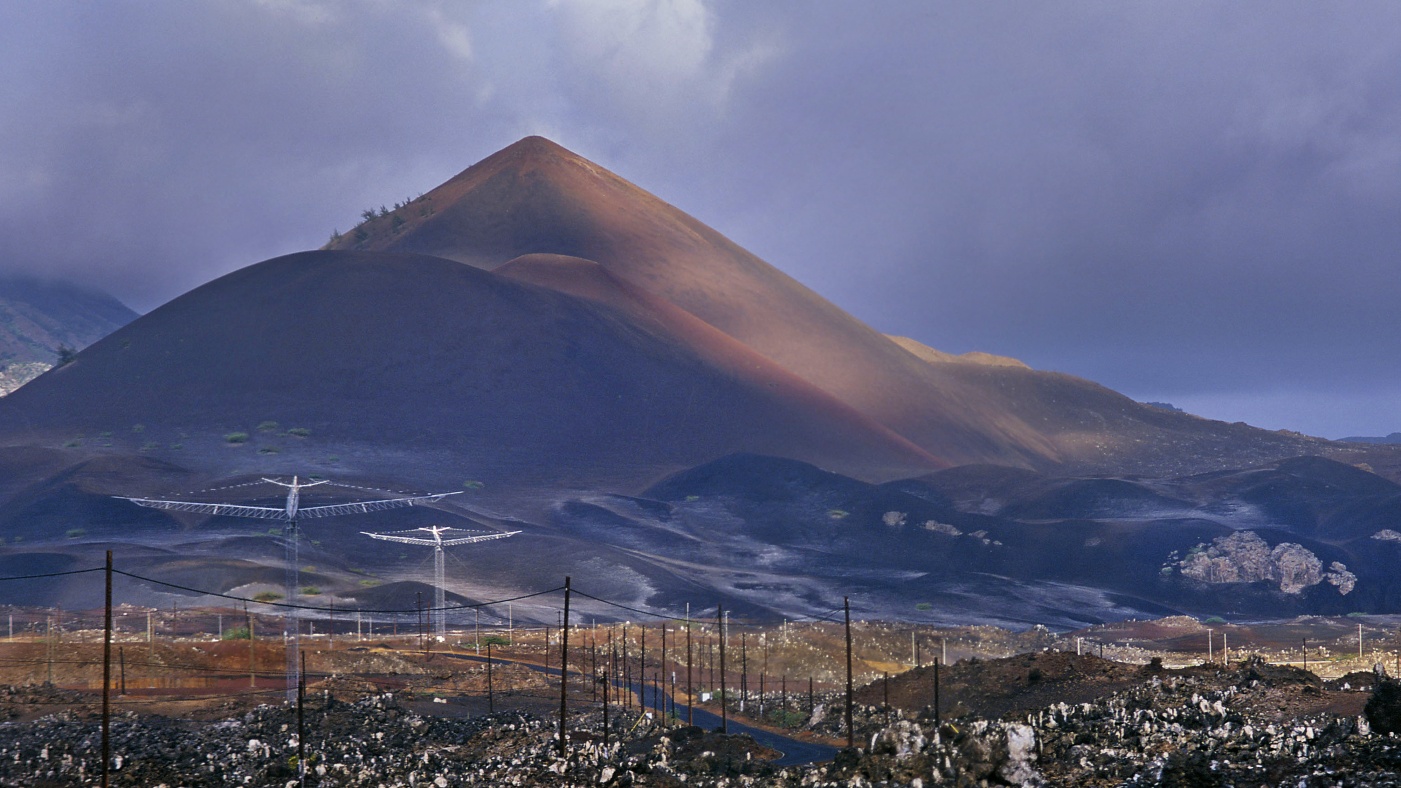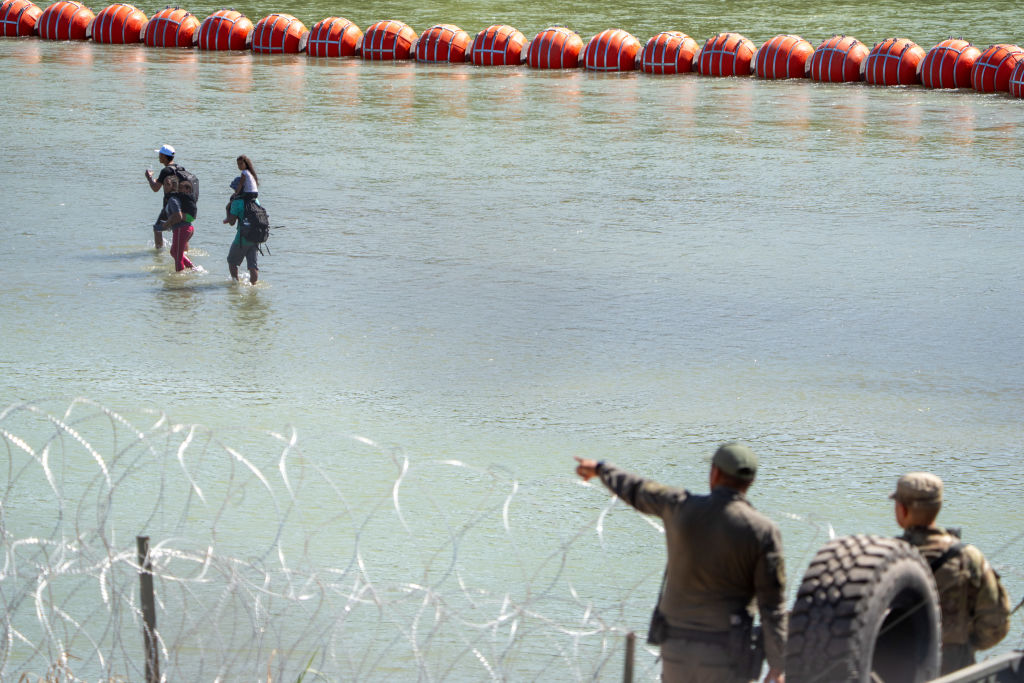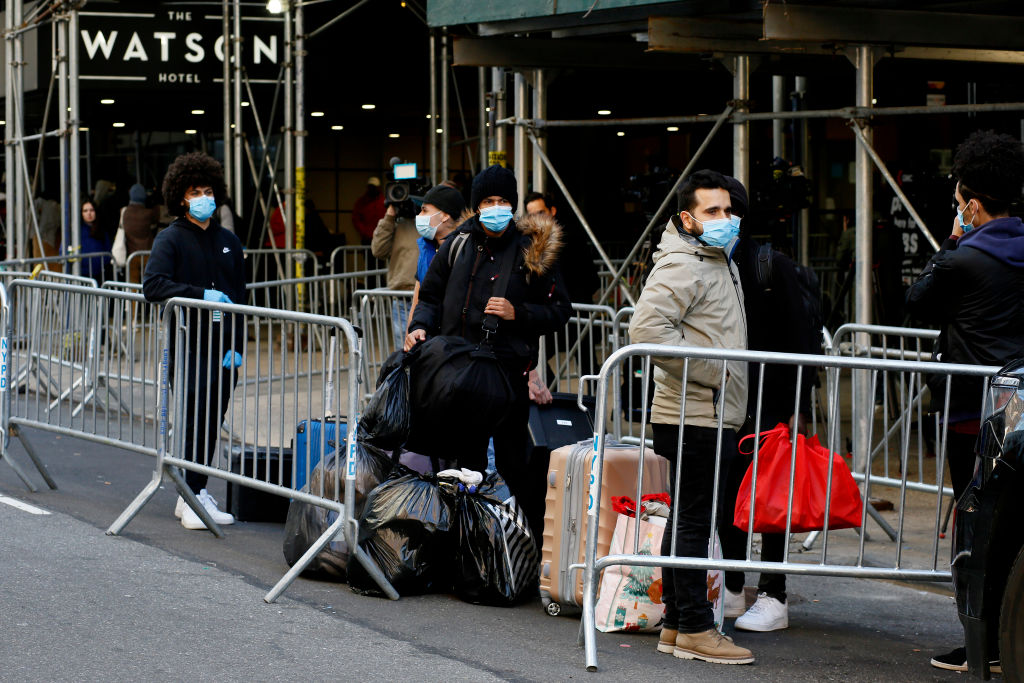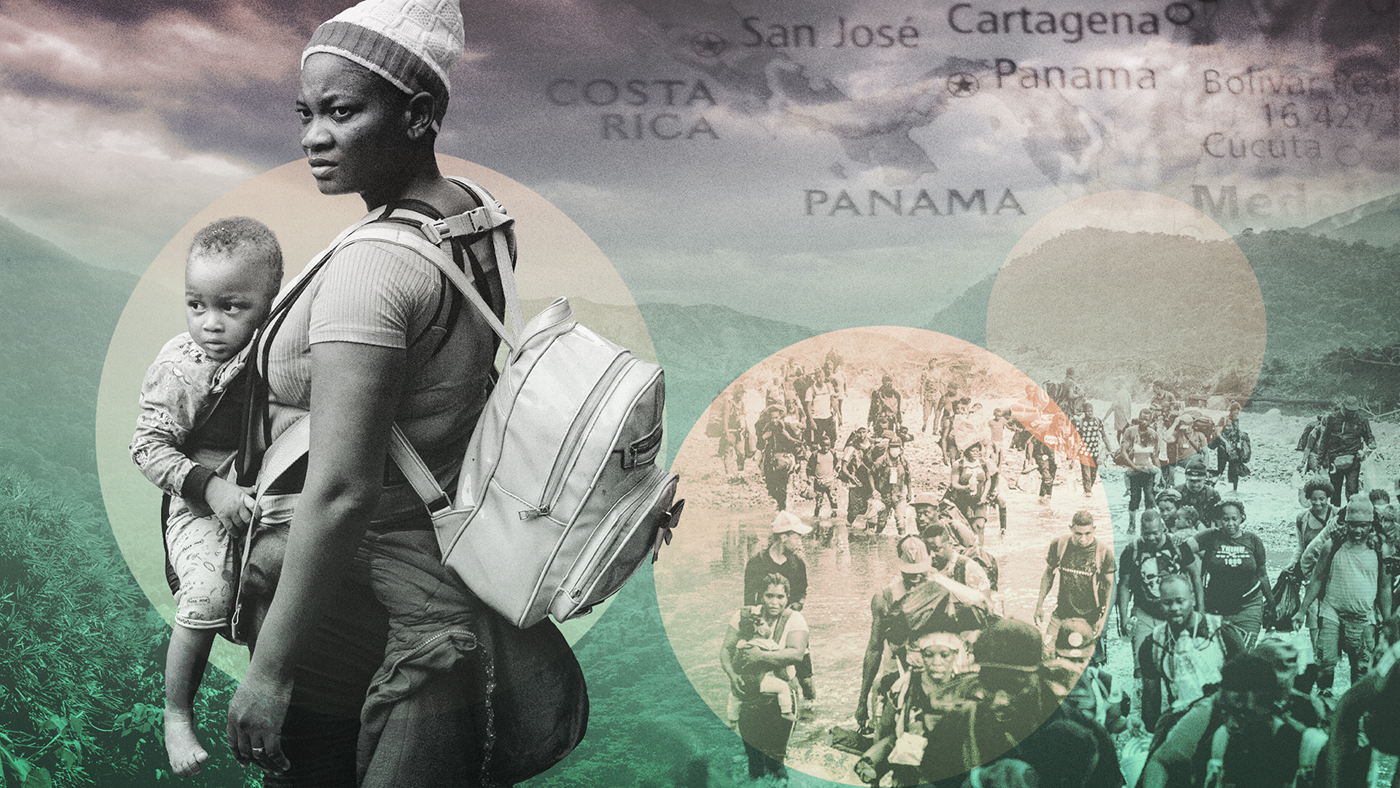Migrant caravan: what is driving thousands from Honduras?
People fleeing Central American nation to escape violence, poverty, corruption and even climate change

A free daily email with the biggest news stories of the day – and the best features from TheWeek.com
You are now subscribed
Your newsletter sign-up was successful
President Donald Trump has been focusing his attention on one issue above all others as the US hurtles towards the midterm elections - the thousands-strong migrant caravan heading for the country’s border from Central America.
US lawmakers first got wind of the march when a group of about 160 people set off from a bus terminal in the Honduran city of San Pedro Sula in the early hours of 13 October. The migrants were “hoping to find work and a better life in Mexico or the US”, The Independent reports.
With the rapidly growing caravan now approaching the US border, Trump has made radical proposals for halting their progress, tweeting that it is an “invasion” of “gang members”, “some very bad people” and “Middle Easterners”.
The Week
Escape your echo chamber. Get the facts behind the news, plus analysis from multiple perspectives.

Sign up for The Week's Free Newsletters
From our morning news briefing to a weekly Good News Newsletter, get the best of The Week delivered directly to your inbox.
From our morning news briefing to a weekly Good News Newsletter, get the best of The Week delivered directly to your inbox.
But the truth is that there has long been mass migration from Central America, and Honduras, in particular.
Despite reports that at least one other caravan has left from Honduras, and three from El Salvador, “the spate of caravans doesn’t mean that more people are migrating – they are just doing so in a more visible way”, Edgar Vallecillos of the New York City-based Scalabrini International Migration Network told The Guardian.
Vox says the migrants “made the decision to leave their home countries, assessing that the danger of leaving was outstripped by the danger” of staying put.
So what is going on in Honduras?
A free daily email with the biggest news stories of the day – and the best features from TheWeek.com
Murder and crime
The most commonly cited reason for mass migration out of Honduras is violent crime. The country has been crippled by gang violence, drug wars and corruption, and has the second-highest murder rate in the world at 56.52 intentional homicides per 100,000 people. Only neighbouring El Salvador records more murders each year.
A 2017 report from Doctors Without Borders (MSF) said that Honduras, which has a population of just over nine million, was experiencing “unprecedented levels of violence outside a war zone” and that “citizens are murdered with impunity, kidnappings and extortion are daily occurrences”.
The emergence of “hyper-violent street gangs” began in the late 1990s, when US legislative changes led to the deportation of numerous members of Los Angeles-based criminal gangs MS-13 and Barrio 18, most of them Central American migrants or their descendents, says InSight Crime.
Rape and violence against women are also widespread in Honduras. The MSF report notes that “non-state actors perpetuate insecurity and forcibly recruit individuals into their ranks, and use sexual violence as a tool of intimidation and control”.
ABC News says the country is in the grip of an epidemic of “femicide”, or murder of women.
According to the Honduras’ Center for Women’s Rights, one woman is murdered every 16 hours in the troubled nation - the highest rate in the world.
Political turmoil
This rampant lawlessness can be traced back to the region’s historical conflicts. The BBC reports that Honduras “has a long history of military rule and corruption” that was dramatically worsened by a constitutional crisis in 2009, when democratically elected President Manuel Zelaya was overthrown by the military and sent into exile.
Violent crime soared in the aftermath of the coup, with widespread corruption and networks of patronage and clientelism.
The countrywide unrest came to a head in November 2017, when National Party leader Juan Orlando Hernandez, who backed the coup, narrowly won an election to gain a second term in office. The Organization of American States later claimed the vote was marred by “irregularities and deficiencies”.
Widespread protests following Hernandez’s victory, during which dozens of people were killed by authorities. Human Rights Watch (HRW) says that since the election, attacks on journalists, lawyers, human rights defenders and environmental activists have increased, as have restrictions on freedom of expression, religion and sexual orientation.
“Impunity for crime and human rights abuses is the norm,” HRW says.
Food and poverty
Robert Albro, a researcher at the Center for Latin American and Latino Studies at Washington DC’s American University, told The Guardian that the focus on violence is “eclipsing the big picture”, with many Hondurans “saying they are moving because of some version of food insecurity”.
More than 66% of the population was living in poverty in 2016, according to the World Bank. “In rural areas, approximately one out of five Hondurans live in extreme poverty, or on less than $1.90 per day,” says the organisation’s site.
But Albro suggests this may be related to a much wider problem. “The main reason people are moving is because they don’t have anything to eat,” he says. “This has a strong link to climate change – we are seeing tremendous climate instability that is radically changing food security in the region.”
A third of all employment in Central America is linked to agriculture, so “any disruption to farming practices can have devastating consequences”, adds The Guardian.
-
 ‘Restaurateurs have become millionaires’
‘Restaurateurs have become millionaires’Instant Opinion Opinion, comment and editorials of the day
-
 Earth is rapidly approaching a ‘hothouse’ trajectory of warming
Earth is rapidly approaching a ‘hothouse’ trajectory of warmingThe explainer It may become impossible to fix
-
 Health insurance: Premiums soar as ACA subsidies end
Health insurance: Premiums soar as ACA subsidies endFeature 1.4 million people have dropped coverage
-
 Experts discover why dogs wag their tails
Experts discover why dogs wag their tailsTall Tales And other stories from the stranger side of life
-
 'Biblical' toad plague causes pile up
'Biblical' toad plague causes pile upTall Tales And other stories from the stranger side of life
-
 Ascension island: UK could send small boats arrivals to remote Atlantic territory
Ascension island: UK could send small boats arrivals to remote Atlantic territorySpeed Read UK government weighs up alternatives if Rwanda scheme is ruled unlawful by Supreme Court
-
 Justice Department sues Texas over Mexico border buoys
Justice Department sues Texas over Mexico border buoysSpeed Read
-
 Why journalist deaths continue to rise around the world
Why journalist deaths continue to rise around the worldUnder the Radar Journalist deaths rose sharply in 2022 and don't appear to be slowing down this year
-
 Mexican mayor marries a crocodile
Mexican mayor marries a crocodilefeature And other stories from the stranger side of life
-
 New York City weakens right-to-shelter rules ahead of expected migrant surge
New York City weakens right-to-shelter rules ahead of expected migrant surgeSpeed Read
-
 The Darién Gap migrant crossing
The Darién Gap migrant crossingfeature Record numbers hike deadly jungle pass from South America into Panama